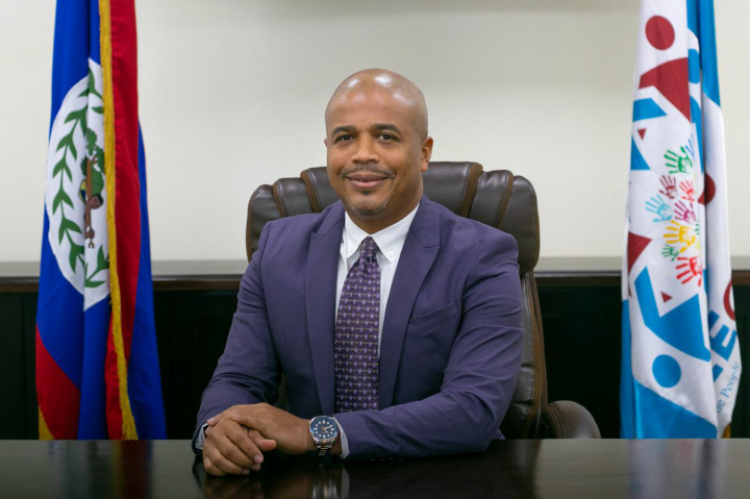"Mayor Bernard Wagner's Controversial Stance: Rejects Convention for Endorsement, Risking Party Unity and Democratic Principles"
Mayor Bernard Wagner's Controversial Stance
By Omar Silva, NP Staff Writer
Belize City, Wednesday 31st March 2023
While it is ultimately up to Mayor Bernard Wagner to decide, whether he wants an endorsement or a convention, there are several reasons why insisting on an endorsement and refusing a convention could be detrimental to his political future:
Lack of Democratic Process:
- Embracing an endorsement instead of a convention may be perceived as a departure from democratic principles within the party. Political parties rely on internal democracy to ensure transparency, inclusivity, and fairness. By bypassing a convention, Mayor Wagner could be seen as undermining the democratic process and potentially alienating party members who value the opportunity to have a say in candidate selection.
Reduced Legitimacy:
- By avoiding a convention, Mayor Wagner risks reducing the legitimacy of his candidacy. Conventions provide a platform for candidates to showcase their strengths, vision, and connect with party members and supporters. The competitive nature of a convention allows for a robust evaluation of candidates, ultimately leading to the selection of the most suitable individual to represent the party. By circumventing this process, Mayor Wagner may face questions regarding the transparency and fairness of his endorsement, which could erode public trust and support.
Inadequate Representation:
- A convention provides an avenue for diverse voices and perspectives within the party to be heard. It allows different candidates to present their ideas, engage in debate, and build coalitions of support. By opting for an endorsement, Mayor Wagner may be limiting the opportunity for other capable individuals within the party to compete and represent the interests of party members and constituents. This can hinder the party's ability to present a unified front and offer a wider range of choices to voters.
Diminished Party Unity:
- A convention can be a unifying event that brings party members together around shared goals and values. It allows for dialogue, consensus-building, and the resolution of internal conflicts. By avoiding a convention, Mayor Wagner risks creating divisions within the party, particularly among those who believe in the importance of an inclusive and participatory selection process. Discontent and internal divisions can weaken the party's overall effectiveness and electoral prospects.
Missed Opportunity for Campaigning:
- Conventions provide candidates with a valuable opportunity to campaign, connect with voters, and build momentum leading up to the elections. By refusing a convention, Mayor Wagner may miss out on crucial campaign activities such as engaging with constituents, articulating his vision, and addressing their concerns. This could put him at a disadvantage compared to opponents who actively participate in the convention process and utilize it as a platform for building public support.
Ultimately, embracing a convention allows for a more democratic, inclusive, and participatory candidate selection process, which can help strengthen party unity, increase legitimacy, and provide a broader range of options for voters. By insisting on an endorsement and rejecting a convention, Mayor Wagner may face challenges in maintaining public trust, party cohesion, and a competitive edge in the upcoming municipal elections. Solo el pueblo salva el pueblo !
In a true representative or monarchical democracy, political party conventions with people participation are important for several reasons:
Democratic Decision-Making:
- Political party conventions provide a platform for democratic decision-making within the party. They allow party members and supporters to actively participate in the decision-making process, including selecting candidates, shaping party policies, and discussing the party's direction. This participatory approach ensures that decisions are not solely made by a select few party leaders or elites, but by a broader range of voices representing the party's diverse membership.
Inclusivity and Representation:
- Political party conventions help ensure inclusivity and representation within the party. By involving a wide range of party members, including grassroots activists, volunteers, and supporters, the conventions give a voice to different perspectives, interests, and concerns. This helps prevent a concentration of power and ensures that the party's decisions and actions reflect the diverse needs and aspirations of its members and supporters.
Party Unity and Cohesion:
- Conventions can play a crucial role in fostering party unity and cohesion. By bringing party members together, conventions provide an opportunity for dialogue, debate, and consensus-building. They allow for the airing of differing viewpoints and the resolution of internal conflicts through democratic processes. This helps create a sense of ownership and commitment among party members, ultimately strengthening the party's overall cohesion and effectiveness.
Candidate Selection:
- Political party conventions often involve the selection of candidates for elections. Through this process, party members have the opportunity to evaluate and choose the individuals who will represent the party and its policies in electoral contests. By actively participating in this selection process, party members can ensure that candidates align with the party's values, principles, and objectives, thus increasing the likelihood of party unity and effective representation.
Grassroots Engagement and Empowerment:
- Political party conventions can serve as platforms for grassroots engagement and empowerment. They allow ordinary party members and supporters to engage directly with party leaders, express their concerns, propose ideas, and shape the party's agenda. This engagement can foster a sense of ownership and empowerment among party members, encouraging their continued involvement in the political process beyond the convention itself.
Overall, political party conventions with people participation in a representative or monarchical democracy like Belize provide avenues for democratic decision-making, inclusivity, representation, party unity, candidate selection, and grassroots engagement. By involving a broader spectrum of voices and fostering active participation, these conventions contribute to a stronger and more responsive political party system that better serves the interests of its members and the wider electorate.
“No one man is bigger than the Party!”
The Party is the People
- Log in to post comments

